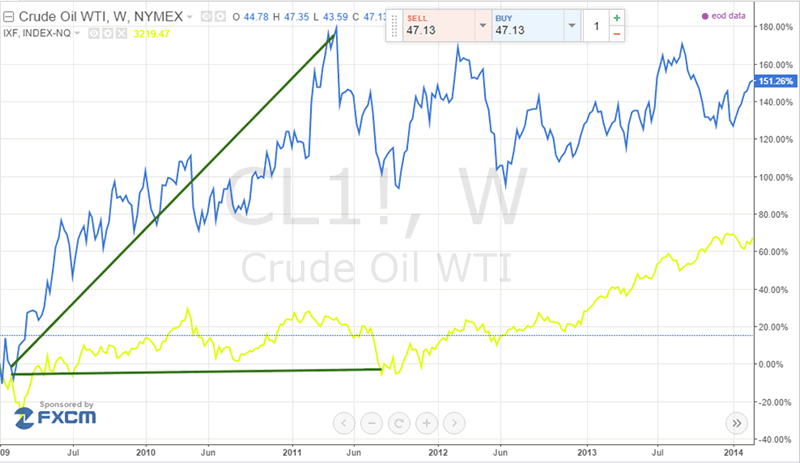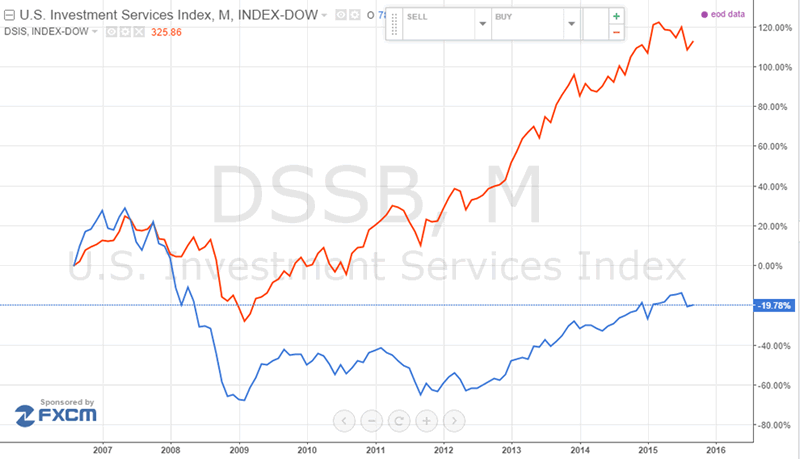How Should You Invest During Recession?
Stock-Markets / Recession 2015 Sep 18, 2015 - 05:09 PM GMTBy: Submissions
 Nicholas Kitonyi writes: The general rule is that the best time to invest in the stock market is when stock prices are low, and sell when they are high. Ideally, stock prices trade at low prices during recession as compared to when the economy is expanding.
Nicholas Kitonyi writes: The general rule is that the best time to invest in the stock market is when stock prices are low, and sell when they are high. Ideally, stock prices trade at low prices during recession as compared to when the economy is expanding.
However, as many investors would tell you, it is not always that simple. In fact, sometimes it is much difficult to pick out the right stocks during recession because you never know where the recession would leave the company by the time it’s over.
Some companies actually do get liquidated due to recession, while others continue to thrive regardless of the circumstances. Remember Lehman Brothers back in 2008/2009? Even the biggest companies can get caught up in a financial crisis leading to closure.
The other way of investing during recession is trading derivatives in which case the investor does not have to own any stock, but only to profits based on the upward and downward movement of the price of the underlying asset.
Some of the best instruments to trade during such times would be forex, options and commodities via various trading platforms including mobile devices via apps such as this one for OptionsXo. CFDs would also be ideal, as would be binary options and spread betting.
With these instruments, it does not matter what the direction of the market is, and importantly traders are not required to top up their accounts with huge sums of funds when trading short positions. However, there is also the risk that traders might lose money to fraudulent/untrustworthy brokers. As such, it is good to do due diligence on the broker that you intend to use when trading in such markets during recession.
One of the best ways to do this would be to check out whether there are any reviews done about the particular broker on major websites, like this case here. It gives you a good picture of the broker you are just about to start dealing with.
However, if you are only intent on investing and owning what you buy, then you may consider choosing your stocks wisely. This is what you should look for in a company that could thrive during recession.
Companies whose customer base appears immune from economic meltdown may be ideal picks during recession. For instance, companies operating in the energy sector are bound to thrive during recession because the cost of transportation and production of energy-reliant goods goes up. A good case example is the manner in which the price of oil rallied during recession beginning 2008/2009.

As demonstrated in the chart above, it is pretty clear that Oil outperformed the NASDAQ Financial sector index between January 2009 and May 2011. This is primarily due to the fact that during financial crisis, people tend to spend less, thereby weakening the financial industry, but when it comes to energy products, it is impossible to control spending. In general terms, when the price of oil goes up, shipping goods becomes more expensive, as was the case back in 2011.
Another interesting factor that investors may want to look at is whether the given company operates in an industry where most of its customers are required by law to acquire the company’s products or services. For instance, an audit firm, or a tax advisory company will always have clients as long as it keeps delivering quality service regardless of the direction of the economy.
Another good example would be the type of company that offers best in class products, or products that have few/zero substitutes. Customers are likely to continue purchasing the products/services of such a company regardless of the status of the economy. In other cases, if a company’s products have many substitutes or aren’t the best in class, chances are that customers would opt for cheaper and possibly better substitutes during recession.
The other unique characteristic that investors should look for when choosing stocks to invest in during recession is essential products/services market. We all know that regardless of the status of the economy, if a product/service is essential for human livelihood, then it does not matter what the economic indicators suggest.

US Support services index versus US Investment services index 2009-2013
A good case example in this case is a repairs company. If a machine breaks down, then it will definitely need repairs to continue operating, or if your drainage system is blocked, then it will need to be services. Also support Service companies tend to continue doing well during recession as compared to investment services company. Such companies do not care whether the economy is slowing or growing.
Conclusion
The bottom line is that whether you are a long only investor, or a trader who can also juggle derivatives market, there are steps needed in identifying the best way to invest during recession.
Therefore, as people continue to speculate about the status of the global markets and the immediate future thereof, it is important to consider your choice carefully before pouncing on what would appear to be a cheap stock only for the company to end up in bankruptcy like was the case of Lehman Brothers.
By Nicholas Kitonyi
Copyright © 2015 Nicholas Kitonyi - All Rights Reserved
Disclaimer: The above is a matter of opinion provided for general information purposes only and is not intended as investment advice. Information and analysis above are derived from sources and utilising methods believed to be reliable, but we cannot accept responsibility for any losses you may incur as a result of this analysis. Individuals should consult with their personal financial advisors.
© 2005-2022 http://www.MarketOracle.co.uk - The Market Oracle is a FREE Daily Financial Markets Analysis & Forecasting online publication.



